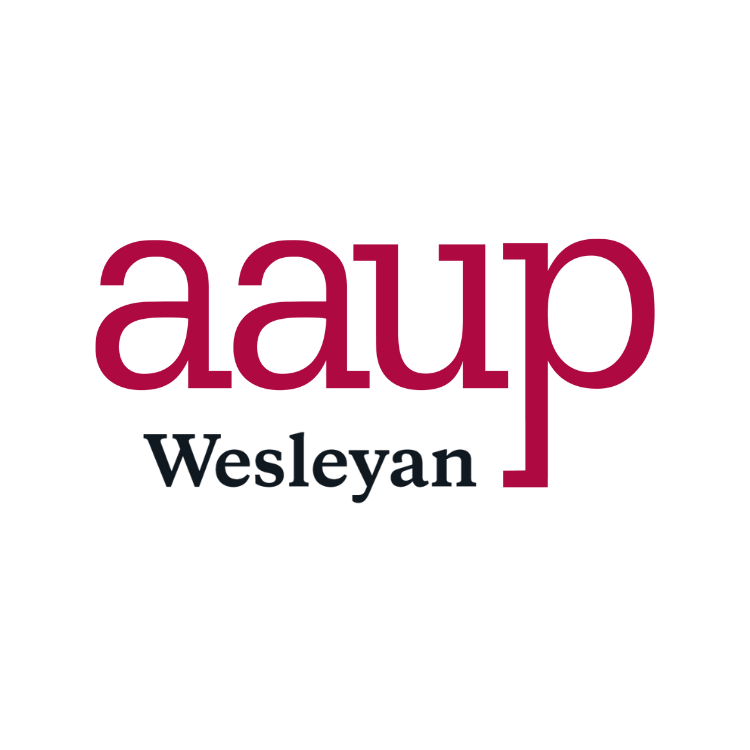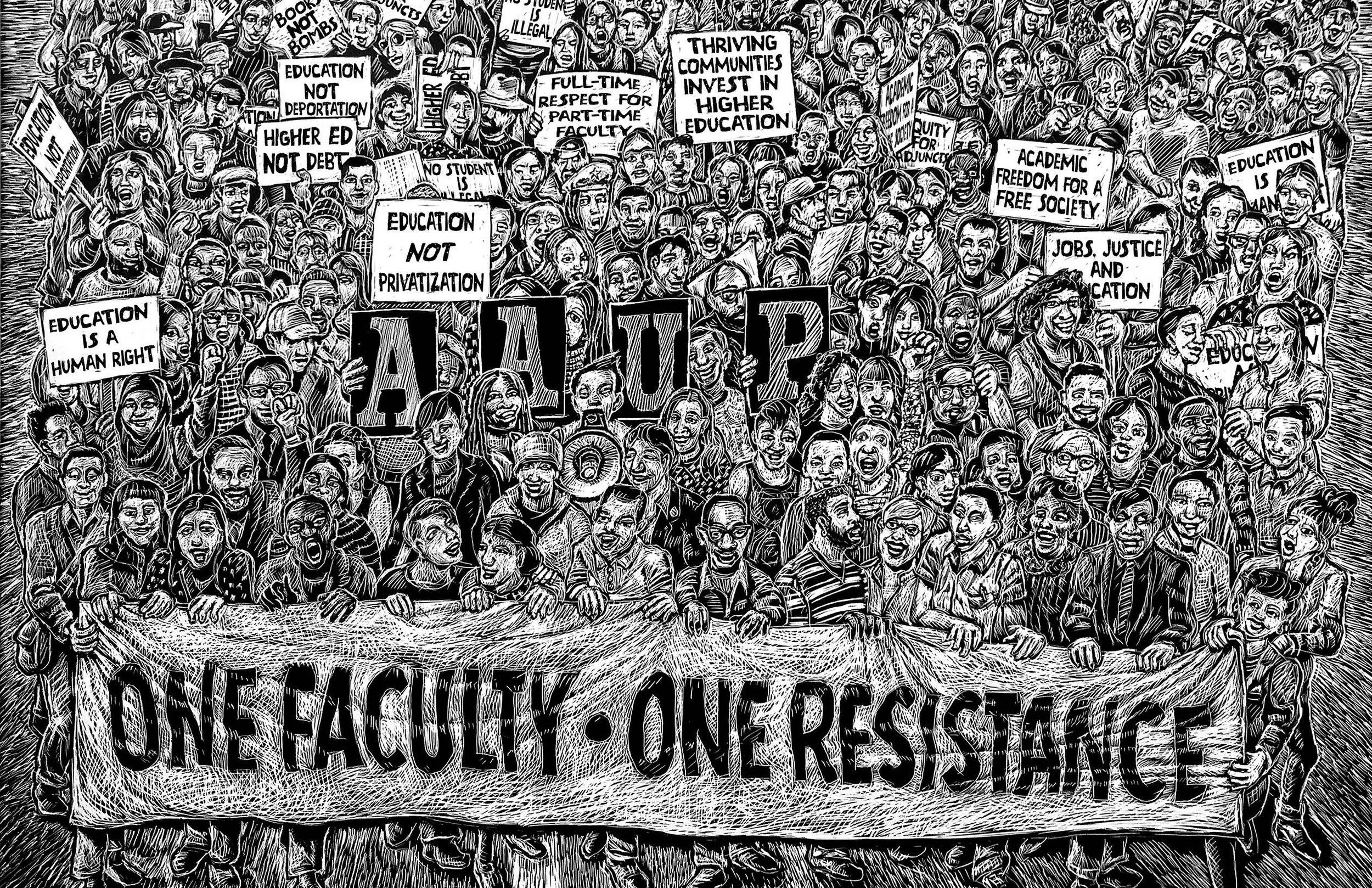One Faculty!
2023 Campaign Proposal
Our Situation
Over the past 15 years, the size of the Wesleyan faculty has grown by a third: from 338 to 451. Contingent faculty account for the majority of these new positions.
Wesleyan’s curricular expansions have relied on increasing numbers of contingent faculty.
The proportion of tenure-line faculty has declined sharply, from a peak of 93% in the early 1980s down to 62% today.
The proportionate decline of tenure-line positions corresponds to the understaffing of many academic units.
The erosion of tenure means that 38% of Wesleyan faculty lack job security and academic freedom.
Our Campaign Goals
Create a path to continuous tenure for all current contingent faculty.
Work with academic units to determine specific long-term staffing needs and ensure sufficient tenure-line positions so that all units can be fully staffed with tenure-line faculty.
Include all faculty in the institutions of shared governance.
Our Campaign Is Based on Core AAUP Principles
Academic freedom is essential to the common good, and tenure is the actualization of academic freedom.
As the actualization of academic freedom, tenure guarantees 1) freedom of teaching, learning, and extramural activities and 2) security of employment.
With exceptions of special appointments clearly limited to a brief association with the institution, all full-time faculty appointments are of only two kinds: 1) appointments probationary to tenure and 2) appointments with continuous tenure. All appointments beyond the probationary period may only be terminated for adequate cause after review by an elected faculty committee.
Tenure is the only guarantee against “at-will” dismissal, regardless of title or rank.
The existence of a subordinate tier of faculty without full status and responsibility within the University violates the most basic AAUP principle: that we are one faculty.
One Faculty!
Campaign Proposal
A Wesleyan AAUP Campaign Promoting the Stability and Integrity of the University and Academic Freedom for all Faculty
FAQs
-
Academic freedom is the collective freedom of the scholarly community to govern itself in the interest of serving the common good in a democratic society. It encompasses the right of faculty to full freedom in research and publication, freedom in the classroom in discussing their subject, and freedom from institutional censorship or discipline when faculty speak or write as citizens. Academic freedom is the essential characteristic of institutions of higher education. Tenure is the only material guarantee of academic freedom.
-
No. Freedom of speech is protected by the law. Academic freedom is secured only through the tenure system.
-
Academic freedom is essential to the common good; tenure is the actualization of academic freedom. Tenure secures two ends: 1) freedom of teaching, research, and extramural activities and 2) job security to make the profession desirable to skilled individuals.
Tenure means that a faculty member has a continuous appointment; it is not an indication of professional standing. The probationary period and review allow tenured colleagues to determine whether a candidate is suitable for continuous employment; probationary review is not an evaluation of the distinctive merit of an individual’s scholarly profile. Tenure protects and promotes academic freedom. It enables scholars to pursue their pedagogical and intellectual work in the ways they deem appropriate without threat of dismissal. The proportion of tenured faculty at an institution is the measure of its academic freedom.
-
No. Following AAUP principles, after the probationary period tenured faculty can be removed only for cause and through due process as determined by a committee of their faculty peers
-
While the exact cost of a fully staffed tenure-track university will be determined by specific unit needs, converting current contingent faculty to continuous tenure, with equivalent salaries, is estimated to add between $2.64 million and $3.83 million to annual operating costs. This number is based on average 2022 compensation differences, without benefits, between a tenure-track Assistant Professor and an Assistant Professor of Practice or full-time Visiting Professor. For reference, Wesleyan’s 2022 operating expenses were $250.8 million and its revenue was $268.4 million, with an endowment of $1.61 billion.
-
Each unit decides, in good faith, how many faculty members constitute full staffing. Full staffing means that normal variations in faculty teaching commitments due to sabbatical, leave, administrative and committee service, fellowships, and other normal features of the academic profession are built into the composition of the unit’s tenure-line faculty. A fully staffed university is one in which all units have sufficient tenure-line faculty to meet their staffing needs without undue strain or recourse to either short- or long-term contingent positions.






